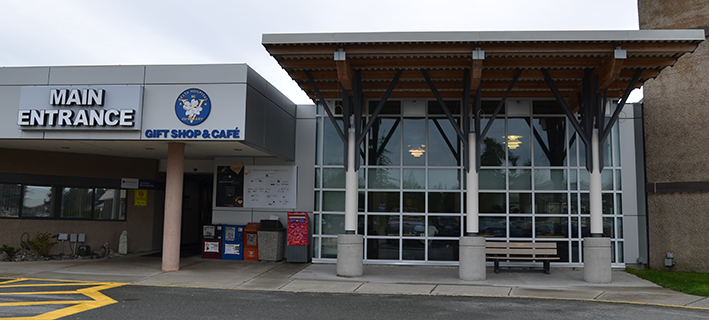A B.C. Supreme Court judge has admonished the Fraser Health Authority for violating a woman’s charter rights by locking her up for almost a year against her will.

It was nine months into her detention before the woman was able to speak with a lawyer, in spite of having asked repeatedly, according to court documents.
B.C. Supreme Court documents reveal that a 39-year-old First Nations woman, identified only by the initials A.H., was detained by Fraser Health Authority staff for 11 months. The woman is described as cognitively impaired and suffering from mental health issues and severe abuse by her mother.
Fraser Health Authority staff decided, for her own good, to take her away from her mother in October 2016, according to the documents. They invited A.H. to go shopping at the mall. But instead of taking her home afterwards, they brought her to Delta Hospital, where she was admitted. Staff told her she had to remain at the hospital for her safety but didn’t provide her with any written reasons for detaining her.
The woman escaped three times. Police brought her back each time.
Police told Fraser Health Authority staff that they couldn’t detain her unless they applied to do so with a certificate of involuntary admission under the Mental Health Act, which would allow them to detain her for 48 hours.
The Fraser Health Authority applied, and the time ran out, but A.H. was kept in hospital for another 10 months.

Get weekly health news
The same thing happened after her third escape from the hospital. A.H. was shifted from Delta Hospital to Surrey Memorial Hospital, where a secure ward had opened up. Once more, the Fraser Health Authority completed a certificate of involuntary admission to hold the woman for 48 hours.
But the judge said that procedure wasn’t followed in either case so there’s no evidence that the woman was even certifiable under the Mental Health Act.
Court documents say the Fraser Health Authority kept A.H. at Surrey Memorial under section 59(2)(e) of the Adult Guardianship Act, which would allow designated agencies to take emergency measures to protect A.H. from harm. But a separate ruling from the provincial court said 11 months of detention could no longer be classified as an “emergency.”
Fraser Health also didn’t apply for permission at that point to assist the woman without consent under section 56 of the Adult Guardianship Act, which would require the provincial court to agree that she was being abused or neglected.
Court documents show A.H. underwent significant constraints while detained. On at least one occasion, she was physically restrained to a bed. She was often denied requests to go outside for fresh air, and her phone and internet use was heavily restricted.
A.H. was also kept under a Do Not Acknowledge protocol — meaning if anyone called or came to the hospital looking for her, staff would deny her presence there.
For the first few months, she was not allowed visitors, but after January 2017, she began having visits from her two children.
The B.C. Supreme Court judge said on many occasions that A.H. had said she wanted a lawyer or asked staff for help in speaking to one. She was told different things from time to time — sometimes she was “redirected,” and other times she was told her detention could not be challenged.
Finally, in August 2017, she was able to speak with a lawyer, who filed a petition on her behalf.
The same day, Fraser Health applied to provincial court for an order under section 56 of the Adult Guardianship Act.
That order was granted, but the Supreme Court judge found on Tuesday that the Fraser Health Authority violated several charter rights by unlawfully detaining A.H. from October 2016 to September 2017.
Those rights included the right not to be arbitrarily detained, the right to be informed promptly of the reasons for detention, the right to retain and instruct counsel without delay and to be informed of that right and the right to have the validity of a detention promptly reviewed.
The judge called the actions of Fraser Health Authority staff “inexplicable.”
The Fraser Health Authority said in a statement that it’s aware of the decision and is reviewing its next steps but couldn’t comment further.








Comments